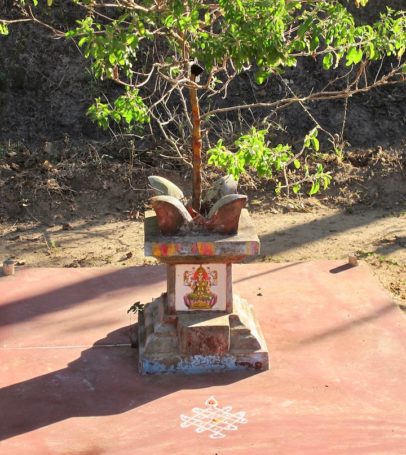A Conversation with Pukka Herbs
“I don’t think there’s a magic formula. You can have things on bits of paper. But these values need to live. They need to be vibrant in the business in order to thrive.”
— Sebastian Pole
I was especially interested in speaking with Sebastian Pole, co-founder of Pukka Herbs, about how to instill a sense of mission and values in a company so that it endures through changes in leadership. He began by talking about how he and co-founder Tim Westell, worked hard early on to instill a sense of mission into the culture of the company. But that wasn’t all. Good leadership and third-party certifications are also crucial.
VALUES AND MISSION OF COMPANY
Pukka’s original mission was based on the essence of Ayurveda and on fulfilling one’s dharma or life’s work, by serving people’s health, serving nature, and serving one’s community. After three years Tim and Sebastian worked with a branding agency to help them articulate these values more clearly and to come up with a visual identity.
Key question to ask: What journey do you want to take your business on? What journey do you want to take your customers on? What do you want to be known for?
By exploring the answers to these questions, Tim and Sebastian defined their core focus as wanting to help people fulfill their potential. A few years later they came-up with a longer term vision, which is now the Pukka manifesto: “Through the incredible power plants we will inspire people to lead a more conscious life.”
Implementing the Vision: Wisdom Seeds

A tulsi tree planted in front of a home is considered auspicious in Hinduism. This tulsi tree is in the courtyard at Hosagunda, a certified organic farm with whom Pukka works closely in Karnataka State, India.
When the company grew to around 50 people, Sebastian and Tim realized they needed to come up with a more serious expression of who they were and to get more people involved in the process. They spent seven or eight years working on this vision. Part of this process included coming up with what they call their wisdom seeds.
These wisdom seeds are: Truth, Respect, Purity and Effort. They are a way of extending their values and articulating what they wanted every action to aspire to. These were aspirational goals, Sebastian said, a way of getting themselves into the mindset and heart-set needed to face the challenges that come in business and daily life with a clear intent. They were not saying everyone had to practice these values one hundred percent.
“Because the other part of our mission was that we would strive hard every day to make sure that we are serving people, plants, and planet. It’s challenging to have a business where you set really high values but operate in a society where there is not a level playing field in terms of sustainability and ethics,” Sebastian said.
Creating a culture:
“These practices were ways of sharing a worldview that Tim and I had ourselves and that we wanted to incorporate into our day-to-day Pukka world, with all the commercial realities that brings.” — Sebastian Pole
They realized this was all a bit intellectual and that they were really trying to establish a culture. They wanted to find ways to make these values meaningful in the day-to-day operations where everyone was doing really hard work: trading things, growing things, and dealing with regulations.
They implemented different practices:
- Hold a one-minute silence at the beginning of a meeting.
- Pass around wisdom seed cards at meetings. Someone would hold truth; another respect. Based on the value of the card that someone held, they would offer feedback for how the meeting could improve. Sometimes that worked really well, the teams were quite engaged. In other areas, it was glossed over.
- Run these values as a theme throughout the year. One team might organize something on truth. They might share a poem every day or lead an activity around respect, say people go out and volunteer in the local community or help each other out.
- Other activities include running mindfulness groups and having a regular yoga class. Pukka prepares a vegetarian meal for all staff once a week and invites speakers.
Nature Immersion, Going Deeper
When they grew to 75 people, they realized the need to experience these values more directly. With the Eden Project, an organization dedicated to educating people about nature, they developed a 4-day course for groups of 10-15 people from Pukka. These small groups are led through a series of experiences organized around the wisdom seeds and deepening their relationships with themselves, with nature, and with each other. It is called ‘Chrysalis’ in the hope of offering a transformative experience that is deeply personal, as well as a way to connect as a group. These groups stay together once they are back at Pukka, as a support group, organizing social events and other activities.
LEADERSHIP
A Good Board
Having a good board at the center looking after governance, the care of all the staff, your money, and the direction of your company is key. It is crucial to have people who are experts in your area who can shine a light on what you’re doing and help you keep moving towards your values, really living them, and expanding them.
Invest in Good Leadership
It can’t be stated enough how much impact the leadership team has: how they’re showing up every day, what they’re wearing, how they sound, how they treat people, Sebastian said. All of that has a huge impact. Investing in your leadership team is crucial.
Get the best people in leadership roles that you can. Love them and help them thrive. The leaders need to be totally engaged. Invest in people heavily.
People
People are your business. That is how you have a sustainable business. Being organic, growing herbs is all great. But the margins are invariably tighter than in a business where you haven’t got to invest so much in sustainability. And so you must have really good people who believe in sustainable values. You need people who can work out the commercial minefield of negotiating these issues in an unfavorable financial market. Ensuring your people are supported personally and professionally is an area that needs constant care and attention. It is one of the most demanding and rewarding parts of running a business.
Mission Council
Pukka has a Mission Council with experts in agriculture, climate change, social justice, and sustainable healthcare and the founders. Their job is to be a critical friend and to help Pukka through the challenges they face as they grow. It reports to the Board and meets with the Pukka leadership team for a few days each year to help Pukka develop its impact and influence.
THIRD PARTY CERTIFICATIONS
“Third party certifications tell you what you’re not doing right and really help you learn.” — Sebastian Pole
“If you are selling anything agricultural – tea, food, clothes, cosmetics, medicines and it is not organic, or does not have a really high agro-ecological certification, then it isn’t sustainable,” Sebastian said.
From day one, Pukka has been 100% certified organic. They added Fair for Life Certified, 1% For the Planet, and B Corps as they evolved. B Corps has been a sort of “foundational breath for the business.” It engages different teams in understanding how to think about being a business that is a force for good. Certifications are expensive and resource heavy but going through the process of meeting the standards educates your whole team in a new way of being. It isn’t normal to run an organic business and the process exposes people who might otherwise not be exposed to these values.
Third party certifications are the guiding lights as a company gets directors, new members of the leadership team, and new owners. These certifications have experts looking at how business can operate while addressing social and environmental issues. It is invaluable to be part of these groups.
Sustainability in Pukka
They have one Director of Herbalism and Sustainability. Beneath that director, a head of sustainability works with different teams to facilitate the sustainability work. Aspects of sustainability are embedded in every team. The sourcing team are experts in the environmental impacts of farming and wild harvesting. Someone in finance looks after their carbon calculations and helps with science-based targets.
Participating in Do Nation was a way to engage staff in making their own climate commitments and lifestyle changes in a friendly and non-competitive way. Since then, more people are changing their electricity supply, car sharing, cycling to work, and reducing their meat consumption.
It is important to keep embedding these values in your culture, so they are not a question.
Set Science Based Targets for your business to grow sustainably in the current global context.
OTHER THOUGHTS
Engage in Activism to ensure that your values don’t get diluted. You need some agitators in your business. Don’t employ people like you. Employ people that think differently, because in that diversity, you get a strong consensus.
Continuing to Learn
“I’m not worried about us in any way diluting our values,” Sebastian said. “The question is, are we going to continue strengthening them? Being organic is not a place where you ever arrive. All businesses have got loads to do to improve. I don’t want us to feel that we plateaued.
If your business is doing well, do you take your foot off the pedal driving change? When organics are only a few percent of the food category, we can’t be complacent and rest on our laurels. A lot more change is needed, and soon.”
Closing Thoughts
“The best thing for a business is to go where you think you can do the best job. This is such an exciting time for businesses where we can rip out the old rule book and work to create an environment that is very fulfilling for the people who are spending a third of their lives working with you.”
B Corps is a very good way of expressing your intent. That is probably the most secure thing you can do. But really, you want a vibrant culture that thrives, where everyone in the business is loving and caring for the world.”


Comments